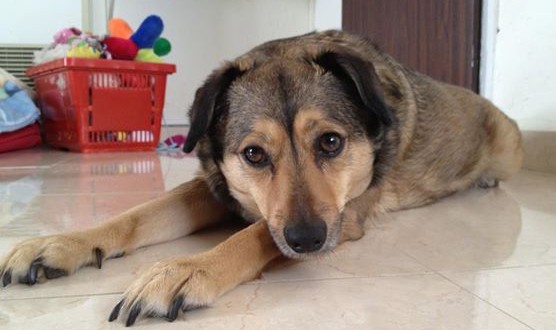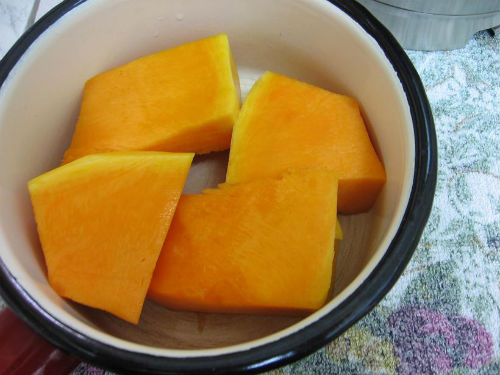Taking care of your dog’s health can be a huge expense. Bringing him to the vet for periodical check-ups and shots, buying medicine when required, having him/her sprayed or neutered…all these can definitely run up your bill! And dog owners with more than one dog have to pay double or even triple (and so on)…

So while it’s always important to leave an emergency fund specifically for your dog’s vet bills and healthcare, there is no reason to spend it, along with your valuable time, on unnecessary appointments to the vet. Many standard doggy conditions and health issues can be sorted out by a simple phone call to your vet, who can then instruct you on what you can do at home to better your dog’s condition. In the case that he doesn’t tell you to come over to his clinic right away, a good vet will usually prescribe a home remedy that can ease your dog’s pain and help him get better, without the added anxiety and stress of going to the vet.
The following home remedies are based on tips that I’ve received over the years from people I trust, such as my family vet, my parents and in-laws, and my good friend Diana Bell who is my go-to person for anything dog-related. All these remedies have worked on my family’s dogs and are made up of simple ingredients that can be found in almost every home, and for the most part, dogs absolutely love them.
Before you continue to read, please note that if any of the following symptoms occur, we advise you to contact your vet first and get his permission to use these home remedies on your dog.
Itchy skin

Usually people assume that itchy skin is a direct result of fleas or mites. In fact, itchiness can also be a side effect of your dog’s food, new laundry detergents, a change of household cleaning products, or even dry weather. Regardless, there are a few things dog owners do regularly that can help prevent dry skin. For example, when washing your dog, never use too much shampoo. Lots of foam means you are using way too much! It’s also important to choose quality dog food brands and keeping your dog on a no-grain diet as much as possible, or on a diet made up of mostly whole grains.
If actual itching occurs and red eruptions start to appear on your dog’s skin as a result, there are a few things you can do.
Fill a bucket with hot water, pour in some ground oatmeal (or baby oatmeal cereal), let it cool, and then gently proceed to pour it over your dog. Alternatively, you can use a clean piece of cloth, dip it into the oatmeal-water and gently press the cloth on your dog’s skin. After your dog is clean, proceed to give him some coconut oil treatment. Other than appealing to (most) dogs’ taste buds, coconut oil is also great for soothing skin. If it’s solid you can apply it to your dog’s irritated spots and if it’s more liquid-like then massage it gently and slowly all over your dog’s body.
Making chamomile tea, dipping a clean piece of cloth in it and then gently pressing it onto your dog’s irritated skin can also help soothe his pain (remember to let it cool first!). The chamomile tea remedy also works by pouring the tea into a spray bottle and spraying it on your dog’s scabs.
In terms of diet, add to your dog’s food bowl some greens such as celery, spinach and lettuce, which my family’s vet always recommends to help with irritated skin.
Kennel Cough

Kennel coughs are contracted when your dog inhales bacteria or virus particles. It is contagious so be sure to keep your dog away from other dogs till he gets better (also, if you know of any dogs with kennel cough, better keep your dog far away from them as well). The best remedy that I found for this is raw honey. It calms and soothes your dog’s throat almost instantly. ½ -1 teaspoonful, three to four times a day, should do the trick (let your dog lick it directly from the spoon). Combining honey with coconut oil also works well.
Diarrhea
Diarrhea can be caused by a number of things. These can range from internal parasites to a change of diet. It can also be a side effect from medication, or can occur when your dog is overly excited, happy, or upset.
For treating diarrhea, most people recommend putting the dog on a 24 hour fast while encouraging him to drink as much water as possible. There are many ways to do this but make sure you only use the methods that don’t involve food or medication of any kind, as that would beat the point of the fast. A great tip that works on my dog is holding an ice cube in my hand and letting her lick it. That way she feels like she’s getting a treat (she LOVES ice-cubes) and I have succeeded in making her drink. After 24 hours, start giving your dog small amounts of low-fat foods such as cooked ground meat (without lots of grease) mixed with rice or macaroni. All of these should be cooked plain, i.e., without any added spices, oil, butter, ect. Wait till it cools and then give your dog a palmful each time, slowly and gradually. You can also add one or two teaspoonfuls of plain pumpkin from a can (without any added spices or ingredients). 3-4 small meals a day like this for two days should do the trick. After two days you can switch back gradually to your dog’s regular dog food.
Constipation
Remember when I recommended pumpkin for treating dog diarrhea? Well, pumpkin works both ways; it is rich in fiber so it certainly helps kick start the bowels into movement. On the other hand, it’s also recommended for treating diarrhea because the fiber absorbs water and makes loose stools firmer. As before, two tablespoonfuls will do (just remember, this has to be plain canned or puree fresh pumpkin, without any added spices or ingredients).
A chicken and ginger broth is also effective for treating constipation. Ginger is great for your dog’s digestive system and contributes to healthy bowel movement. Just mix ¼ teaspoon of ginger and ½ cup of chicken broth and pour it over your dog’s regular food.
Another simple thing you can do when your dog is suffering from constipation is to take him out for a good long run, play with him, walk him, and basically keep him active. Exercise does wonders for bowel movements, for humans and canines alike!
Over the Counter Human Meds
Some over the counter meds that are good for humans are also good for dogs. Benadryl, for example, is an antihistamine that also acts as a sedative, and can help out in multiple situations such as dog anxiety, itchiness and allergies, bug stings, and more. However, be sure to check with your vet about the right amount of dosage to give to your dog. The correct dosage usually depends on the dog’s weight (the standard dose being 1mg/lb, every 8 hours). Please note, Benadryl is only safe for dogs in its pill or capsule form and is hazardous to dogs with high blood pressure and other health conditions.
3% Hydrogen peroxide induces vomiting in dogs, and should be given only in case of an emergency (and with your vet’s consent), such as when your dog swallowed something dangerous or poisonous. Sometimes inducing vomiting can cause even more damage, depending on what was swallowed, so it’s extremely important to consult your vet first. Use 1 teaspoon of liquid hydrogen peroxide per 10 pounds of weight. Insert it in your dog’s mouth with a syringe or encourage him into drinking it himself by combining it with a little bit of water. If your dog hasn’t vomited after 30 minutes, don’t give him another dose and take him to the vet immediately.
Bloat/twisted stomach is a danger to every dog (symptoms being stomach gas, enlarged and swelling abdomen, and signs of discomfort such as pacing, salivating, whining and trying to throw up). Products such as Gas-X contain simethicone, which breaks up gas bubbles and relieves pressure. You may give it to your dog at the first sign of a swelling abdomen, and take him to the vet as soon as possible.
Share with us: what home remedy health tips work best for your dog?
 All The Frugal Ladies Personal finance with a feminine touch
All The Frugal Ladies Personal finance with a feminine touch









